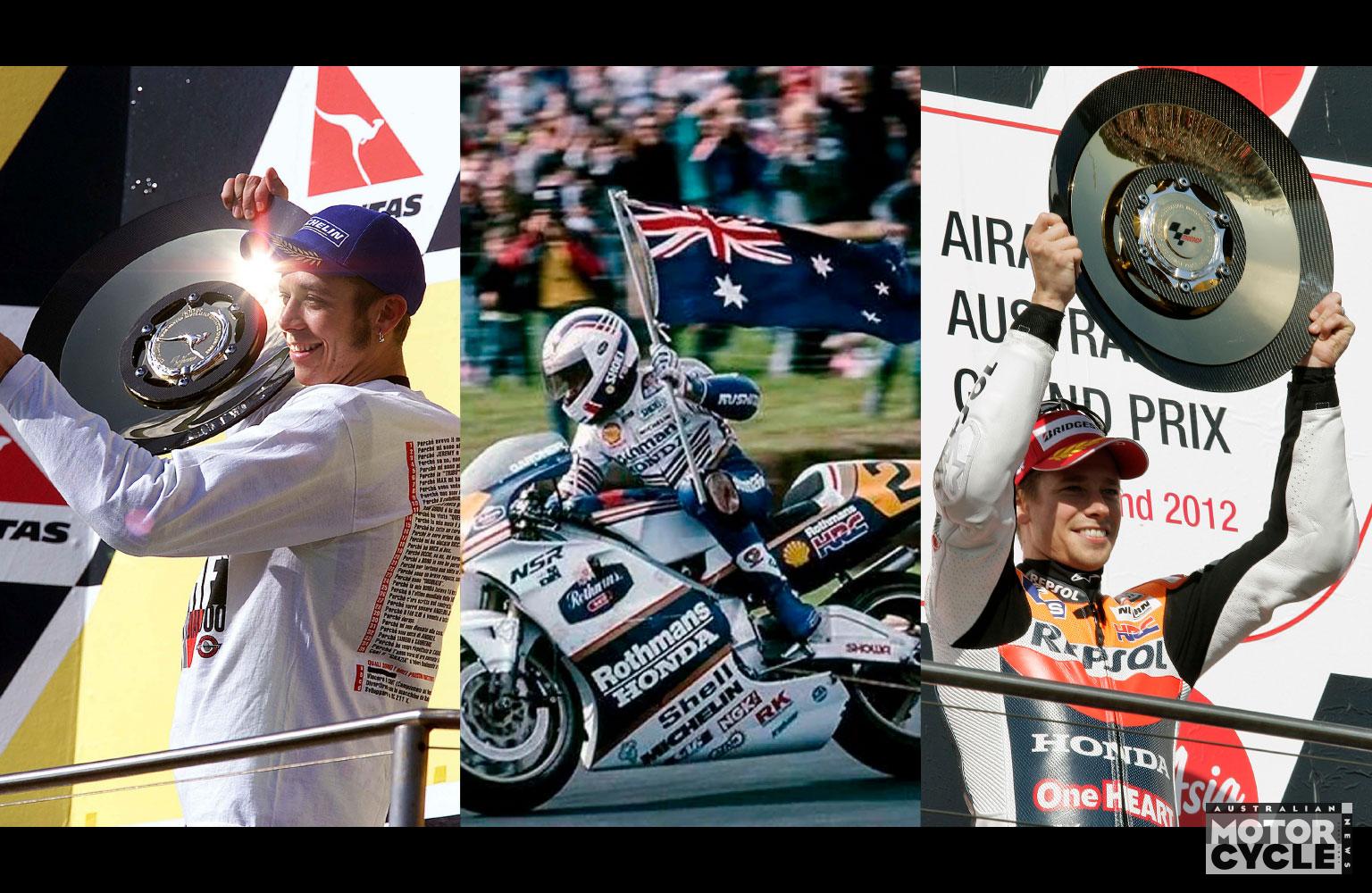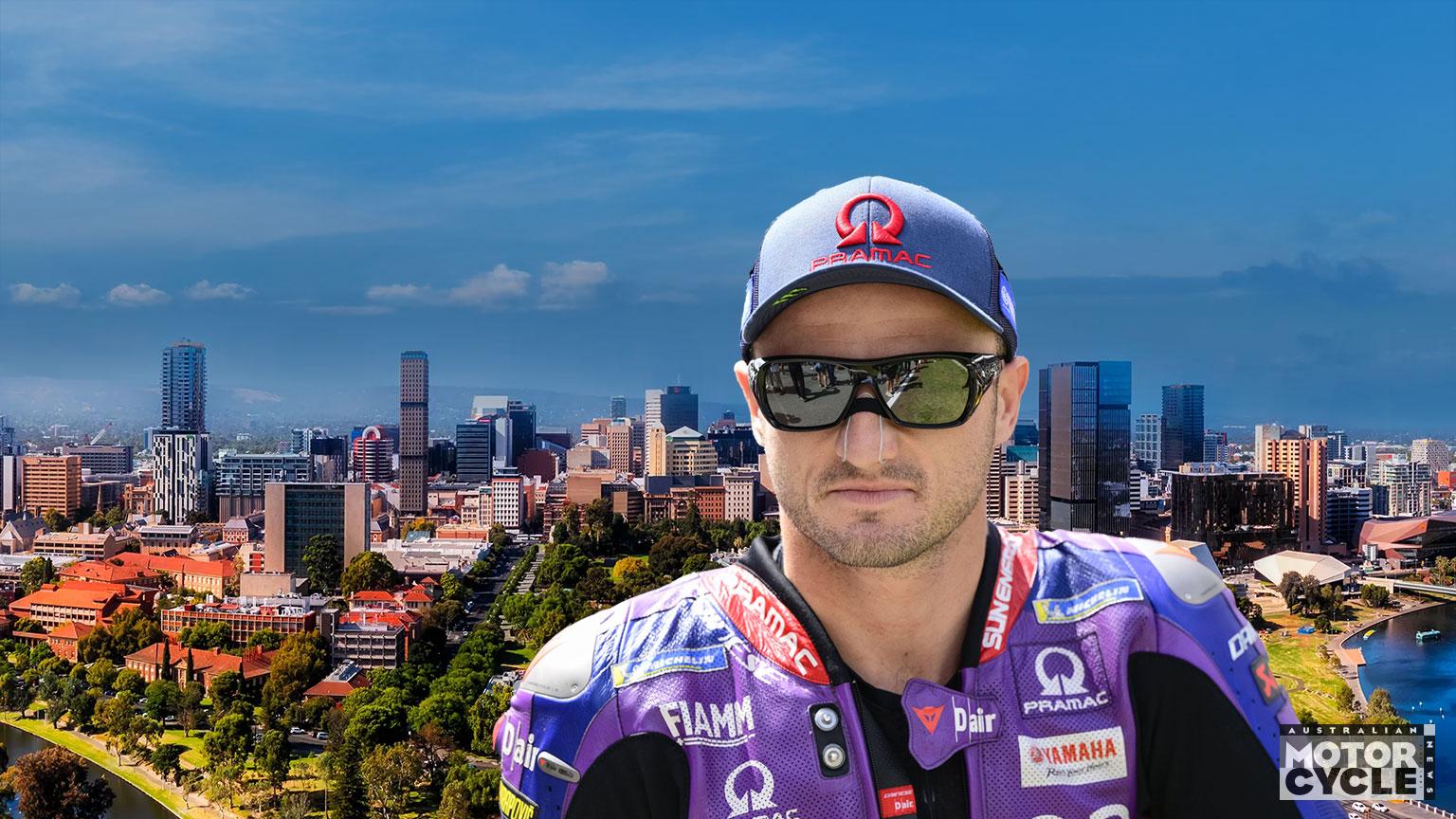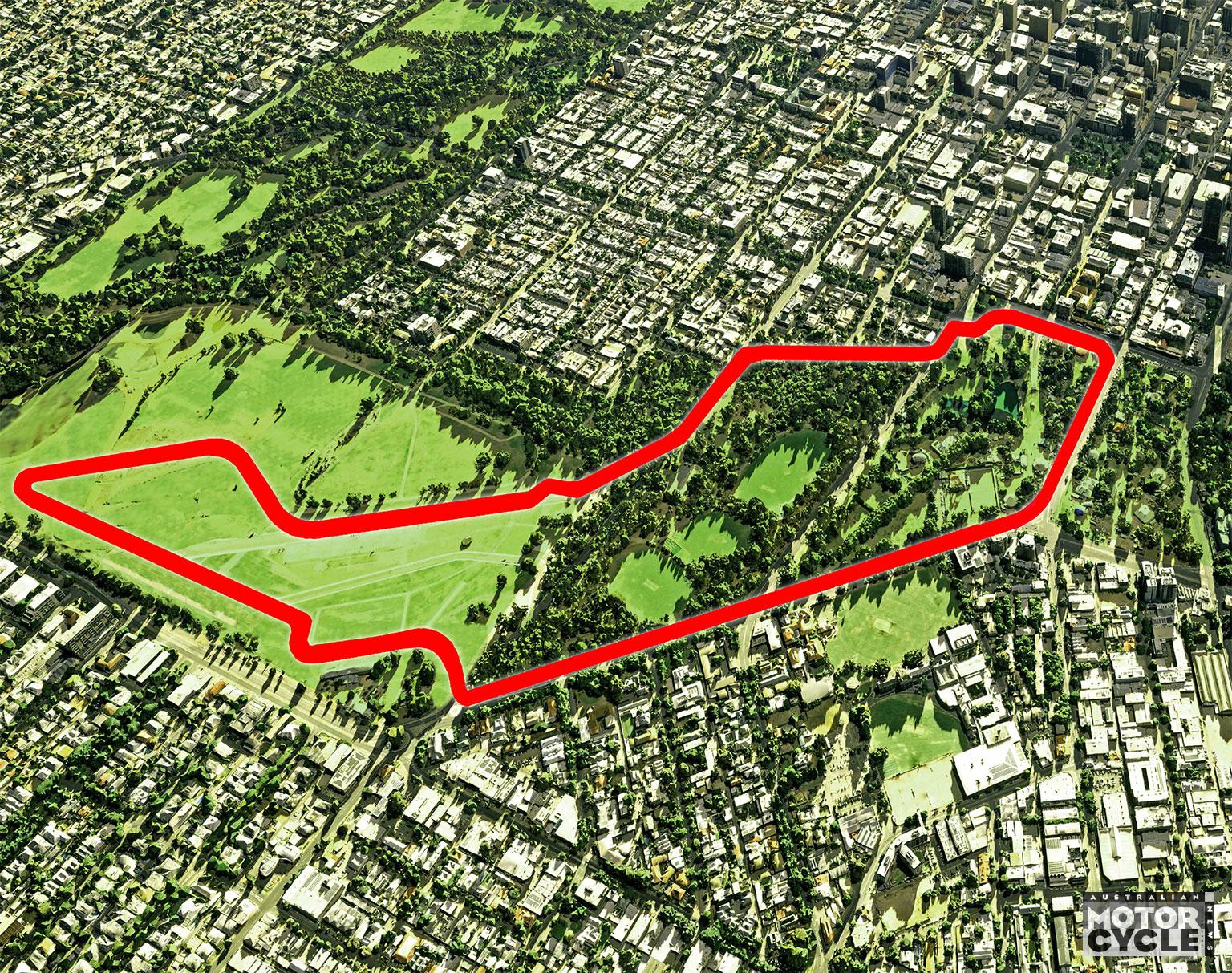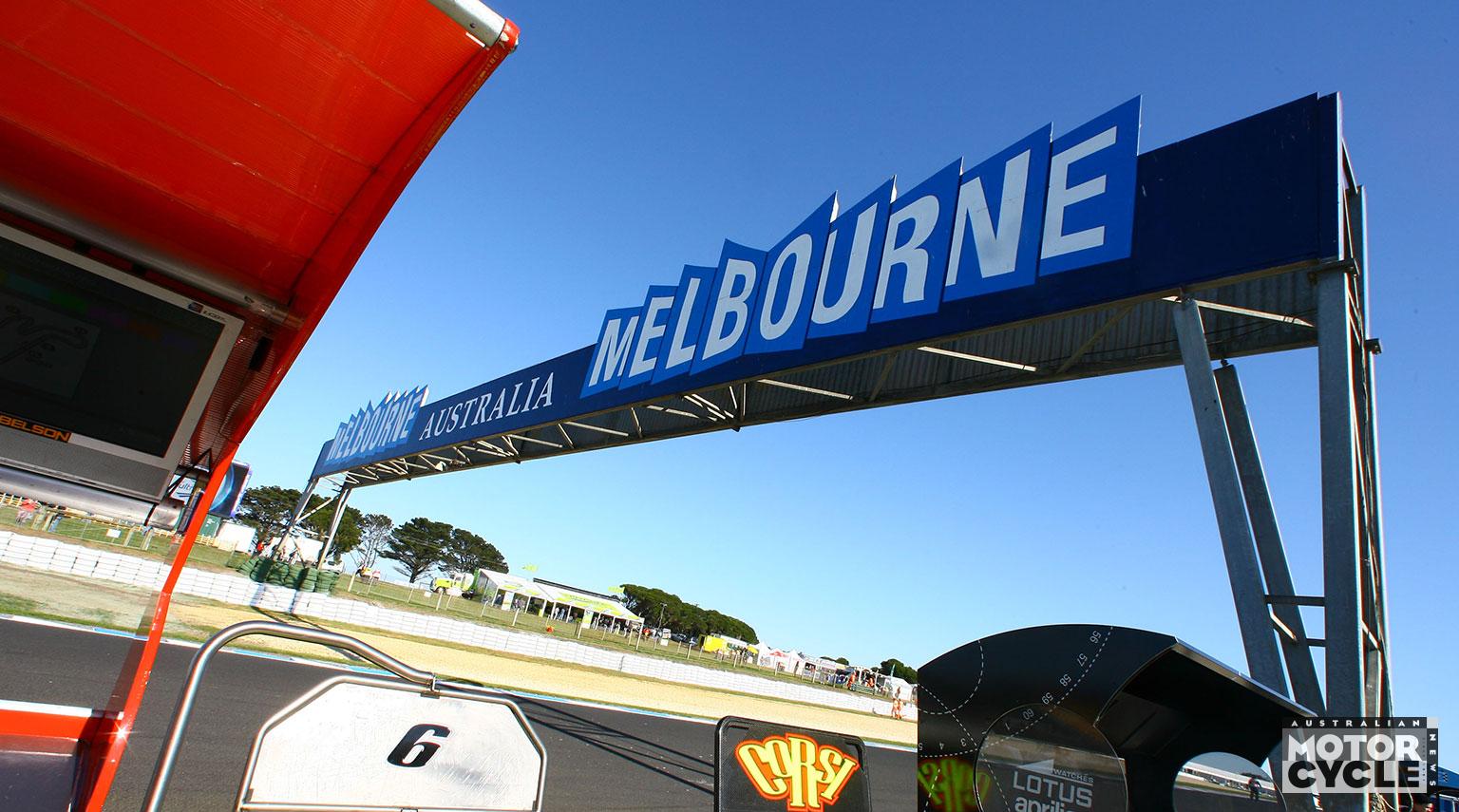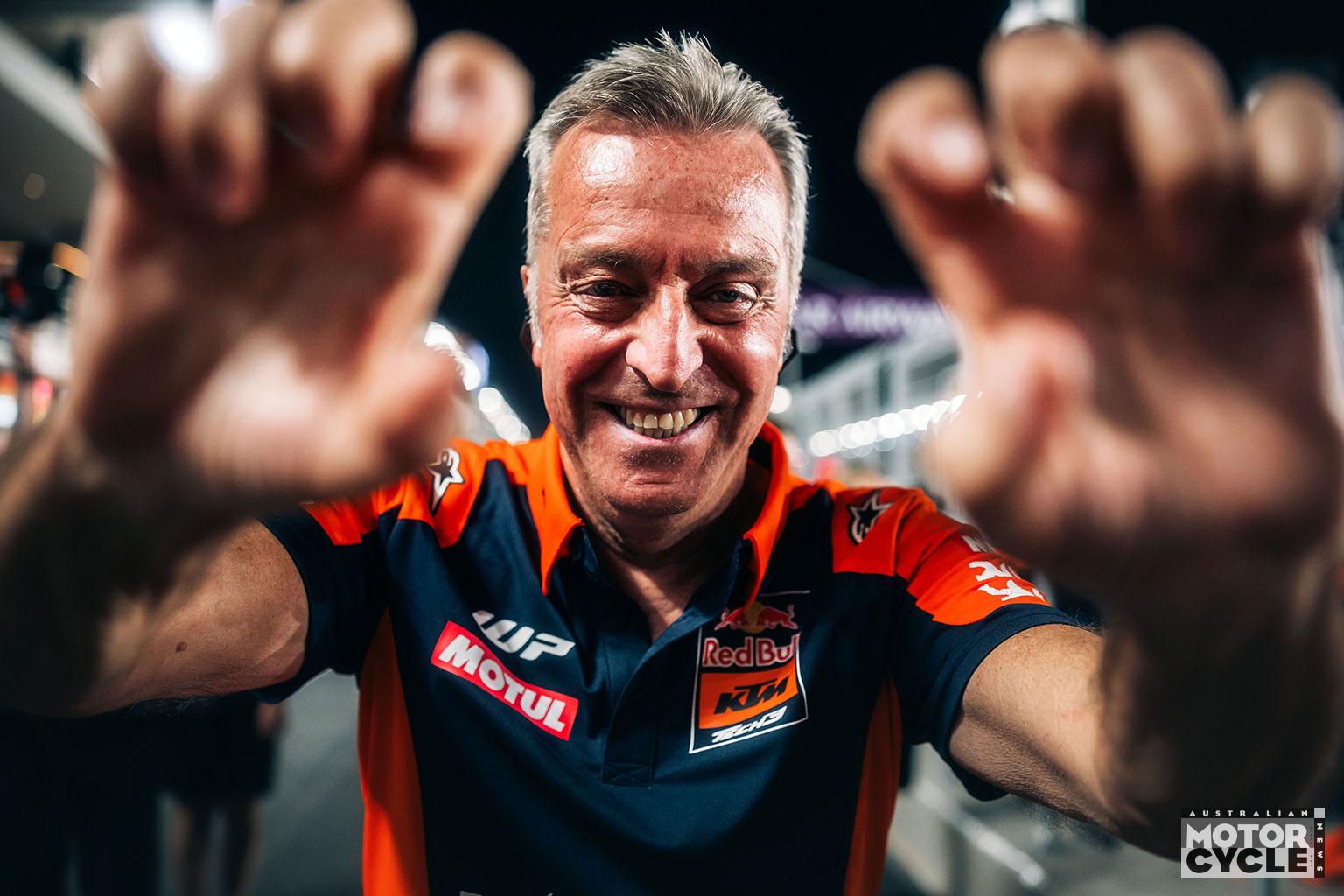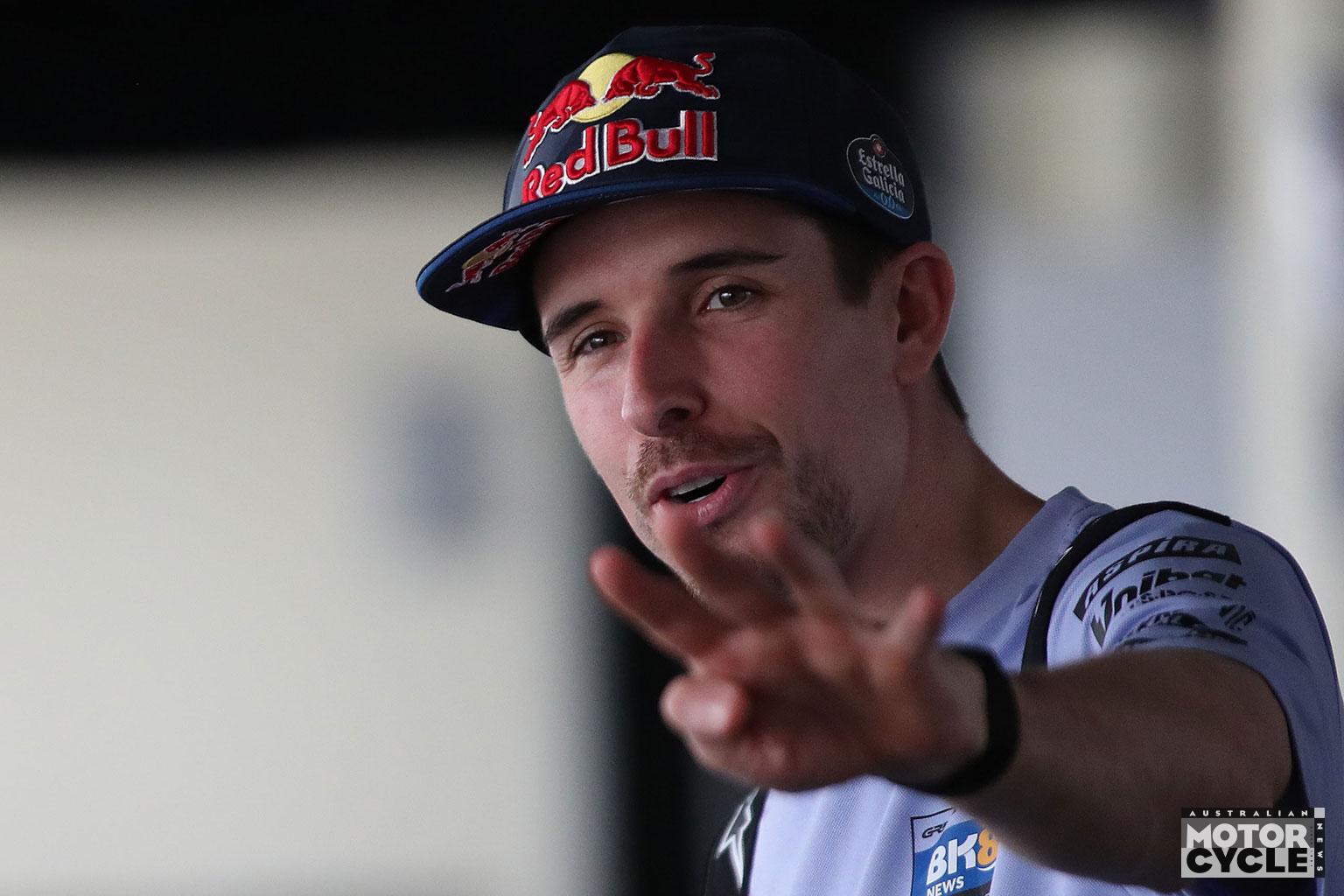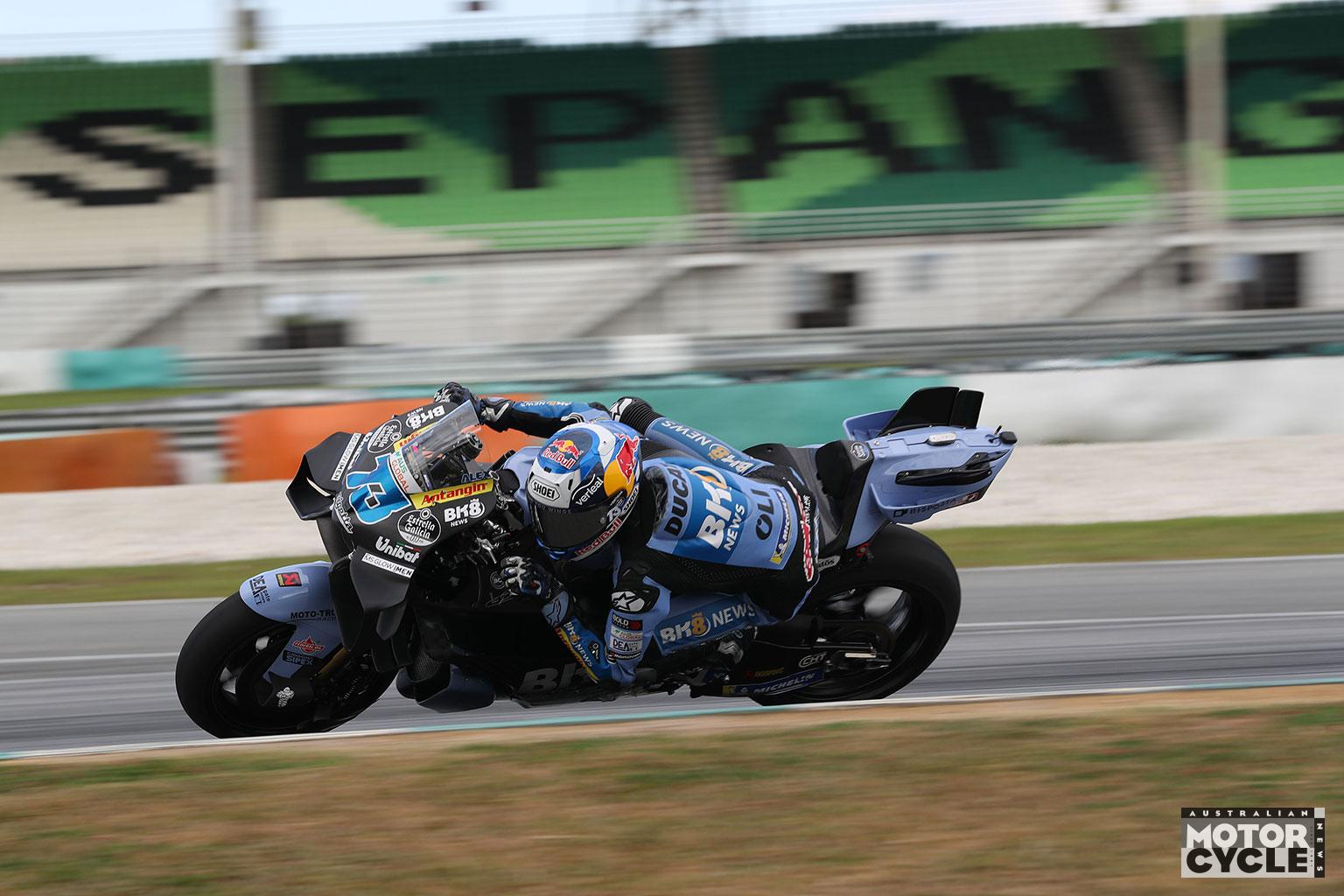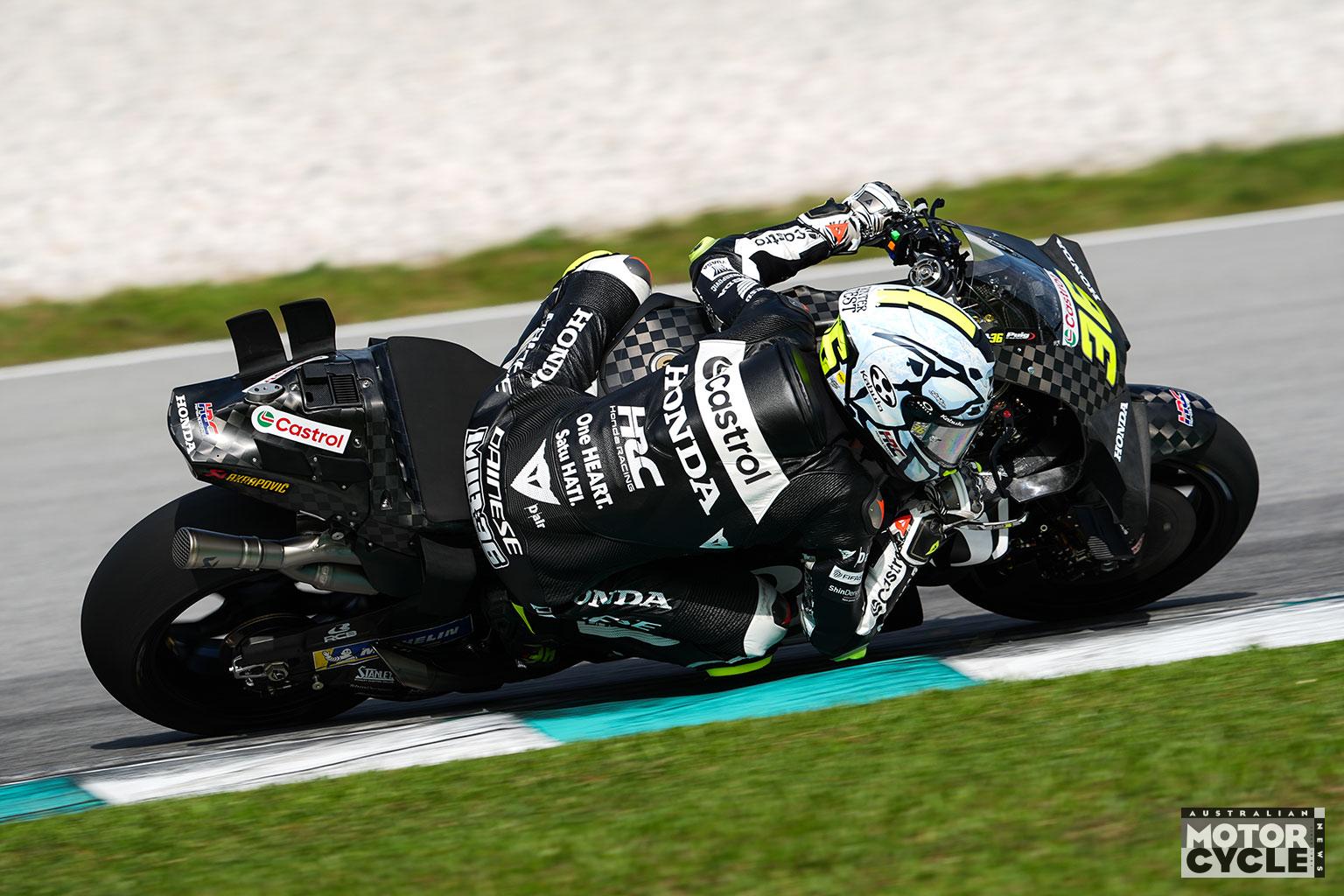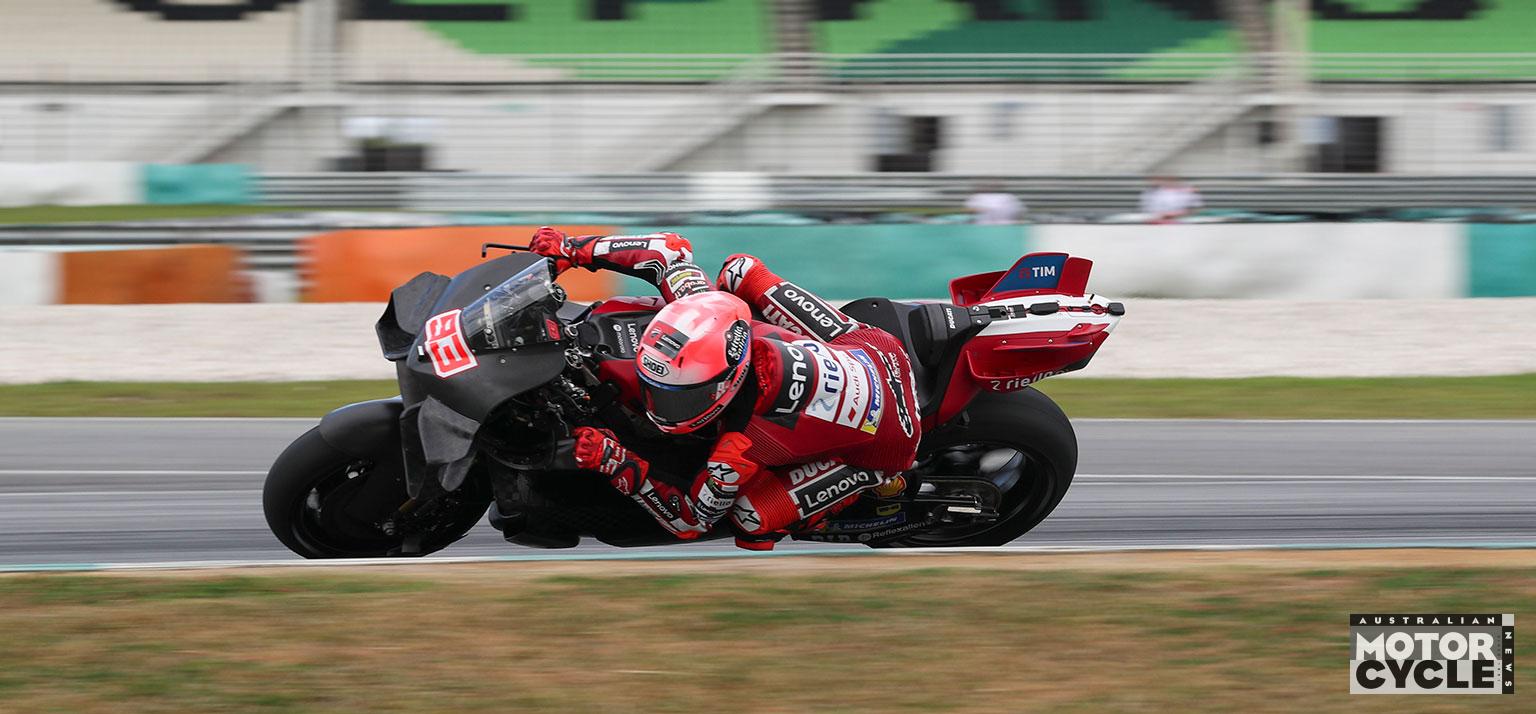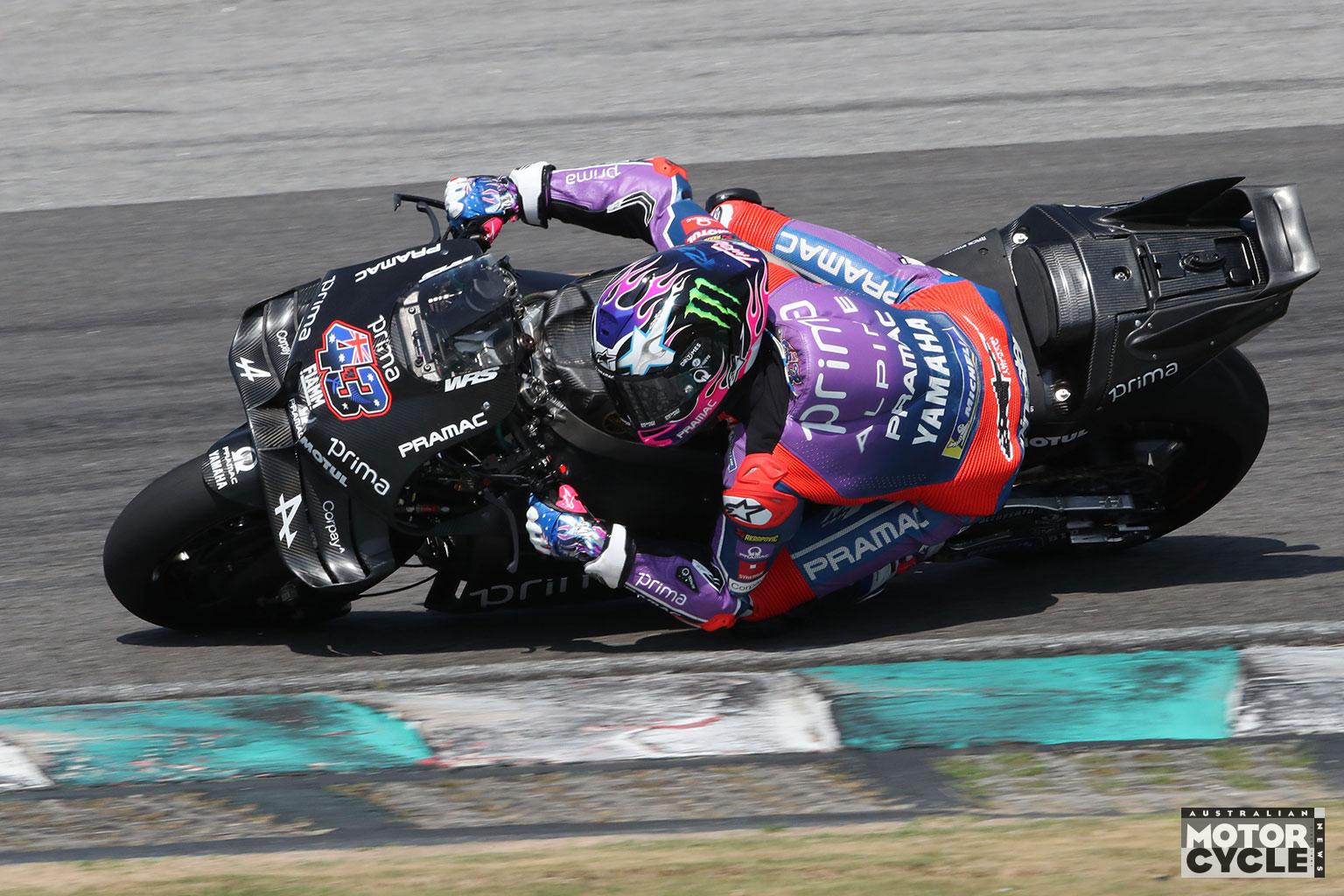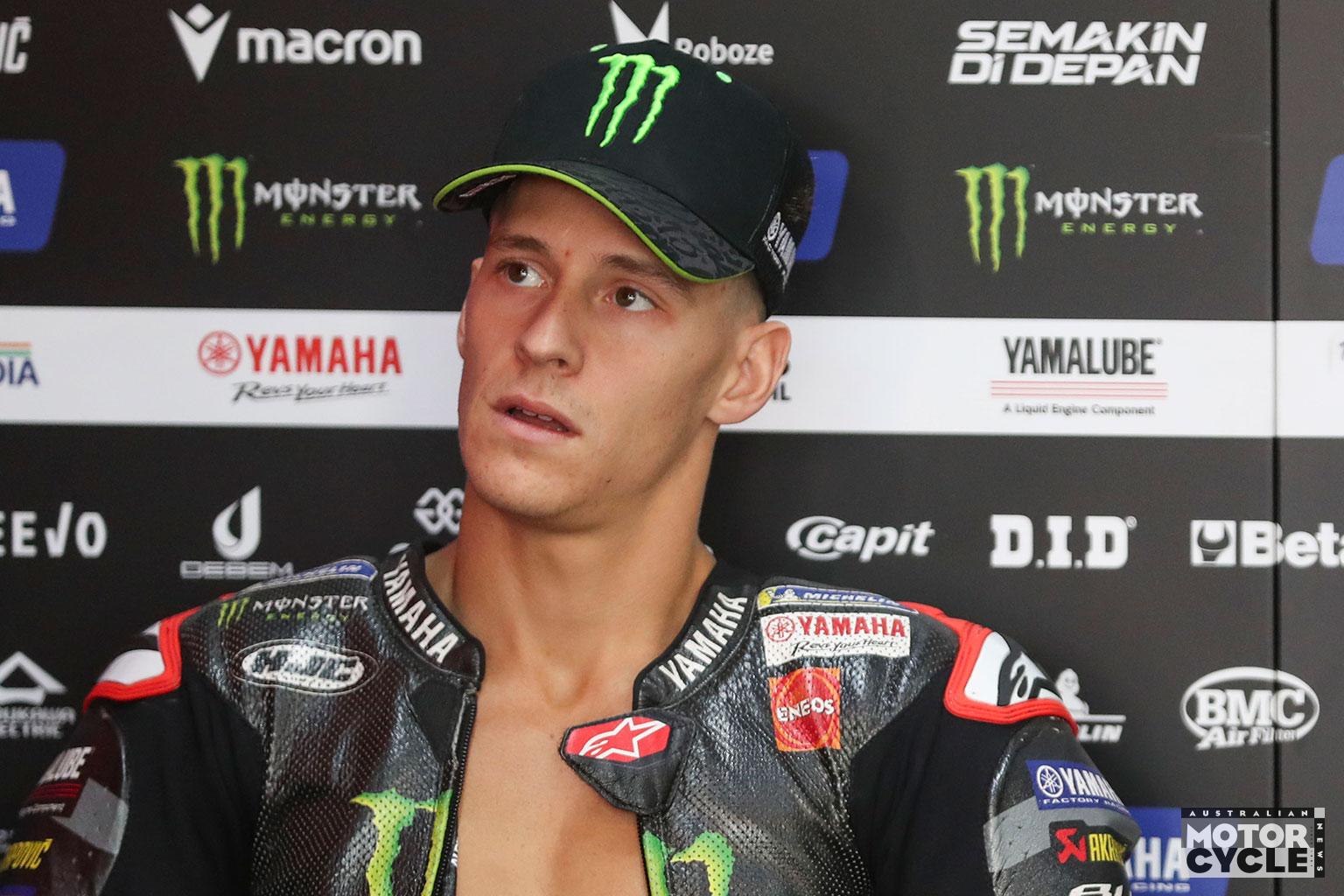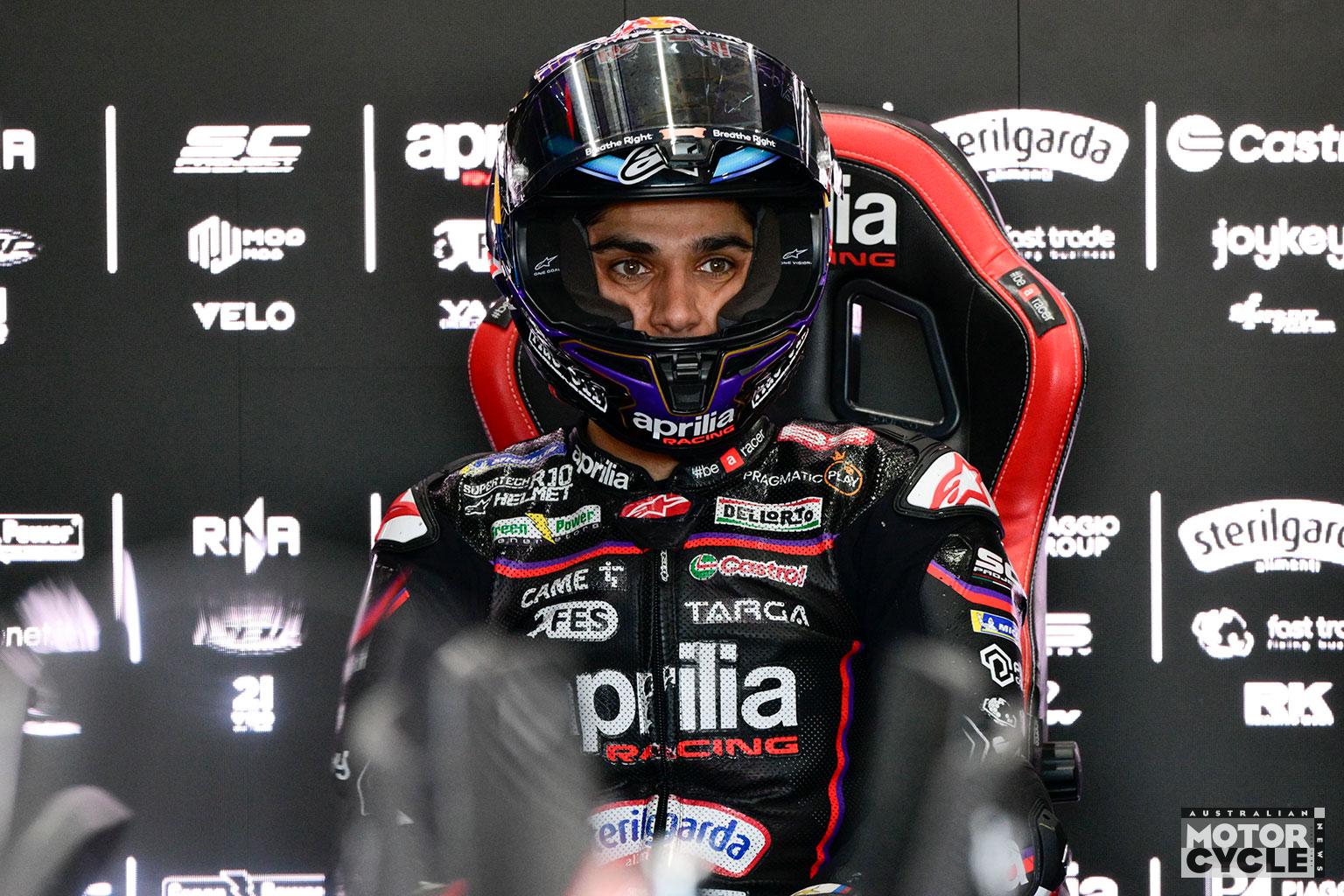VALENTINO ROSSI: TOP 10 MEMORIES
Valentino Rossi made his grand prix debut in 1996, on 31 March, at Sham Alam in the 125cc Malaysian GP. He was the resident paddock rascal, the son of Graziano, a bohemian grand prix winner.
Twenty three years later Rossi reached an extraordinary milestone at the 2019 Australian Grand Prix at Phillip Island; his 400th grand prix start…
Rossi remains a headline act in grand prix racing with an insatiable devotion to life on two wheels and a list of achievements that define a record-breaking era. Life and racing has changed over the long journey, but not Rossi’s passion for racing.
“I was a bit crazy when I was young,” Rossi said. “Very often I took a decision or had reactions, that I would never have today at the age of 42.
“Nowadays I feel my experience affects every decision I have to take. I get angry less often than in the past because I’ve understood that it’s useless. When I was young I couldn’t hold back. When I think of such things, I see myself very much changed.
“But one thing that has not changed at all, however, is my passion for racing. This is something that was passed to me by my father when he put me on a bike as a child. Since that moment I have never stopped and even today, when I jump on a bike, I feel I have exactly the same passion and adrenaline as I had when I was young.
“From this point of view, I am exactly the same Valentino as the one who first raced 26 years ago.”
Rossi made his grand prix debut at age 17 on an Aprilia RS125. He finished sixth. Guiding him on those first steps to stardom was Aprilia’s then sporting director Carlo Pernat.
“Valentino’s style was like Kevin Schwantz, riding the motorcycle in a fun way, like a bicycle. Beautiful. Even more funny were all the jokes. The legend of Valentino was born in 1997 winning the 125cc championship,” Pernat said. “In 1997 he proposed I become his manager, but I stayed with my contract with Aprilia. Now I take a hammer to my balls for this!”
Rossi’s place in GP history was assured at Welkom, South Africa, the first race of 2004.
He’d turned his back on Honda after 33 wins and three world titles to switch to Yamaha, which had not won a championship since 1992, when Wayne Rainey triumphed.
“Welkom was a unique moment,” Rossi remembers of that first Yamaha win. “Nobody expected my victory and it was very emotional. It was a great challenge and I was very brave.
“Welkom is the highlight of my career – not only for the victory but for the meaning that race had on me. That race changed my life and my career.”
Less satisfying was Rossi’s ill-fated switch to Ducati in 2011 and a winless two seasons before returning to the safe haven of Yamaha. It was a break that undoubtedly hampered his ambition of matching the 122 career wins of Giacomo Agostini.
Valentino, do you remember them all?
Not all, I remember only the beautiful ones. Well no, it’s not true, even some bad races. I have a good memory, however, for the bikes.
People say that just by telling you the name and date of a GP, you have no hesitation in telling the right podium?
Yes. I could also go to a TV show. If they did one on MotoGP, I would have a good chance to win.
Four-hundred-and-two races is a crazy number. Which 10 races most characterise your career?
The first three are very clear. The most important one is the first victory with Yamaha, South Africa 2004. That was when the myth – which is maybe bad to say – but the myth of Valentino Rossi exploded.
I left Honda, which was then the best bike of all, much better than now – so much better that people said that if you didn’t have a Honda you couldn’t win – and I went to Yamaha, which at that time was really in trouble. On second thoughts, I was really crazy, a fool [laughs]. That wasn’t very smart.
Would you do it again?
Very much I would do it again, because it was the most important thing in my career. It was one thing to keep winning with Honda, and sometimes I have regrets, I say to myself, “how many f***ing races would I have won if I had stayed another five years?”
Maybe I would have beaten Agostini, too. In Yamaha I may have won less, but they were the best. So I did the right thing. At that time I was, I’m not saying crazy, but very brave.
You still are?
Yes, but then I was much bolder. So this victory (Welkom) is the crowning achievement of the first part of my career. It’s the best moment and it ends at the end of 2005, the period in which I dominated, 10-12 victories a year, 100 points ahead in the championship.
Then there was a downturn. In 2006 and 2007 I didn’t win the title and usually when you don’t win anymore after you’ve already won five MotoGP World Championships, you’re done. People said: ‘That’s it, Valentino is finished. He made his career, he won seven world championships in total, he equaled Mick Doohan. He’s done.’
As a second race in my top list I would put Laguna Seca 2008, because in 2007 arrived on stage the one that was to replace me, Casey Stoner, the new Valentino Rossi, who beat me with a Ducati.
But at this point I made another bet, after the Yamaha one: ‘If you give the Bridgestone tyres also to me, I’ll fool him too, even if he’s younger’. Laguna Seca was the reckoning with Stoner, the race that made me win the (2008) World Championship.
That weekend at Laguna Seca, Casey was half a second faster than everyone else. He was very strong in practice, he had dominated, he started on pole. Beating him there was really a highlight of my career.
And in that year (2008) I would choose another one, but it does not belong to the top three: China. Because I came back to victory after a long period, and it was my first victory with Bridgestone tyres. The first three or four races of the season were not great and so everyone said: ‘ah, here you go, you see? He’s an asshole, even with the Bridgestone, he loses.’
And then there was Lorenzo, who still had the Michelins, and he had made three pole positions in the first three races and won in Portugal; ‘Valentino is over, besides Stoner, Lorenzo will be his heir,’ people said. But I won in China, and from there we all started out for a totally different season.
Barcelona 2009. In 2008, I beat Stoner (in the championship), who then had some problems, also because to me the Yamaha was better than the Ducati. But in 2009 there was Lorenzo, the new, new Valentino Rossi. So there were already two of them [laughs]. Lorenzo was tough, very strong, very talented and very concentrated. After this Barcelona race we were on equal points – Lorenzo, Stoner and I, all on 106.
And this had been another showdown, fighting all weekend to the death with Lorenzo, with that overtaking at the last corner.
An overtake that has become history?
I was very good in head-to-head, and Lorenzo said, ‘Now I want Valentino, sooner or later I’ll catch him in the last lap, I’m ready to kick his ass’. And instead, I fooled him. That was a super overtaking, exciting.
So a clear top three, and after that?
Other very important moments are the 125cc and 250cc World Championships with Aprilia. But for races there is Brno in 1997, the first time I became world champion (125cc).
And I would also choose Brno 1996 (125cc), my first GP victory. The first victory is never forgotten.
Did something change in your head in that moment?
Yes. I was becoming strong, but winning is different, it’s something that makes you say that you can do it. I had my first podium the race before in Zeltweg (Austria), and from there it all started.
After ’97, I passed to 250cc in 1998, it was a transition, but I still won the title in 1999 at the second attempt, and then onto the 500cc class.
And that helped make you a legend?
I grew up dreaming of the 500s. I watched them on television with Graziano and Uccio, who always hung around my house: the first ever race I remember is Assen 1986. The 500s were the bikes of the great riders; Schwantz, Doohan, Spencer, Rainey, they were the top. And so my first 500 win, at Donington 2000, I put it as fourth on the list, in the wet, where I was never too fast.
And fifth?
In fifth place I would put Brno 2001, that was another showdown with Max Biaggi who arrived in a great mood. He had won at Sachsenring, and Brno was his track. But I managed to beat him. And later in 2001, my first 500cc World Championship which I won with a victory at Phillip Island, after another great fight with Biaggi.
Let’s jump forward in time?
The third part of my career. Or maybe the fourth, I don’t know. Yamaha remains as Lorenzo’s team, after my leg and shoulder injuries, then the two years with Ducati (2011 and ’12). In that moment it really felt like I was at the end.
Did you think so, too?
No, I didn’t believe it. But in 2013, I was 33 years old, and for many I had to be finished by 2005. Instead, getting on my knees, I managed to get myself back on track with Yamaha, where they didn’t want me after, let’s say, a bit of an abrupt divorce.
At first it was a ‘no, we won’t give it to you, it’s over’. And, honestly, if they hadn’t given me back my Yamaha, I would have stopped racing.
Instead Lin Jarvis came to your house in Tavullia.
Exactly. Lin did a good move, we started talking again. Among the Japanese there were those, like Nakajima, who said no, but others were pushing for my return. In the end we made it.
So the victory at Assen in 2013 is one of those moments in the 10. Also because the victory before that was Sepang 2010, the day that Lorenzo had won the title. Two and a half years had passed, it was nice.
1 South African Grand Prix, MotoGP Welkom: April 18, 2004
Rossi sends his former bosses at Honda into meltdown by winning first time out on a Yamaha YZR-M1, beating Max Biaggi (Honda) by 0.2s.

2 USA Grand Prix, MotoGP Laguna Seca: July 20, 2008
Rossi engages Casey Stoner (Ducati) in a fearsome contest highlighted by an off-track corner cut at the Corkscrew, the win crucial for the 2008 title.
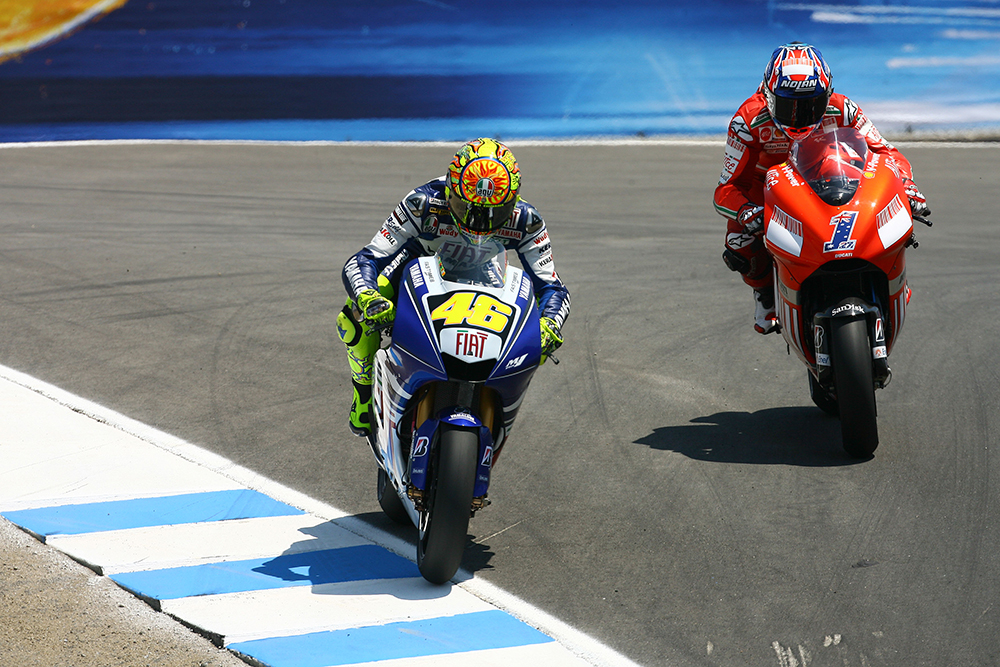
3 Catalunya Grand Prix, MotoGP Barcelona: 14 June, 2009
In one of the most daring, and sublime overtakes in the history of the sport, Rossi nips inside Jorge Lorenzo at the final corner to win by 0.095s.
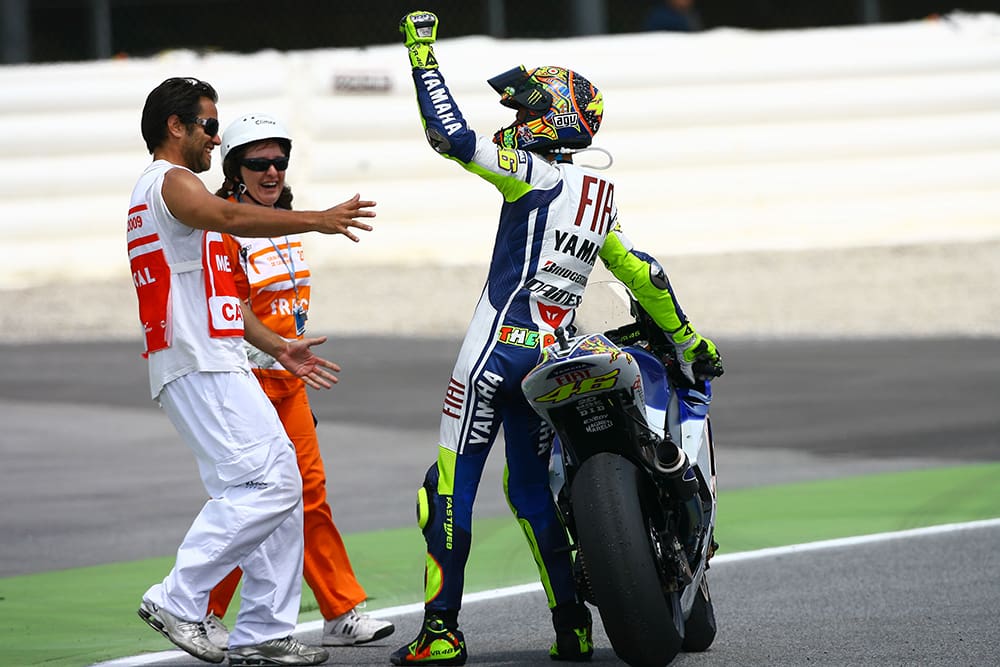
4 British Grand Prix, 500cc Donington Park: 9 July, 2000
Rossi’s first win on a bike he loved, the superb Honda NSR500, in a wet race, edging out Suzuki’s Kenny Roberts Jr by 0.395s.

5 Czech Republic Grand Prix, 500cc Brno: 26 August, 2001
Rossi’s number-one enemy Max Biaggi (Yamaha) sets a pole record but crashes in the race during a tense battle with Rossi, who cruises to a 3.3s win.
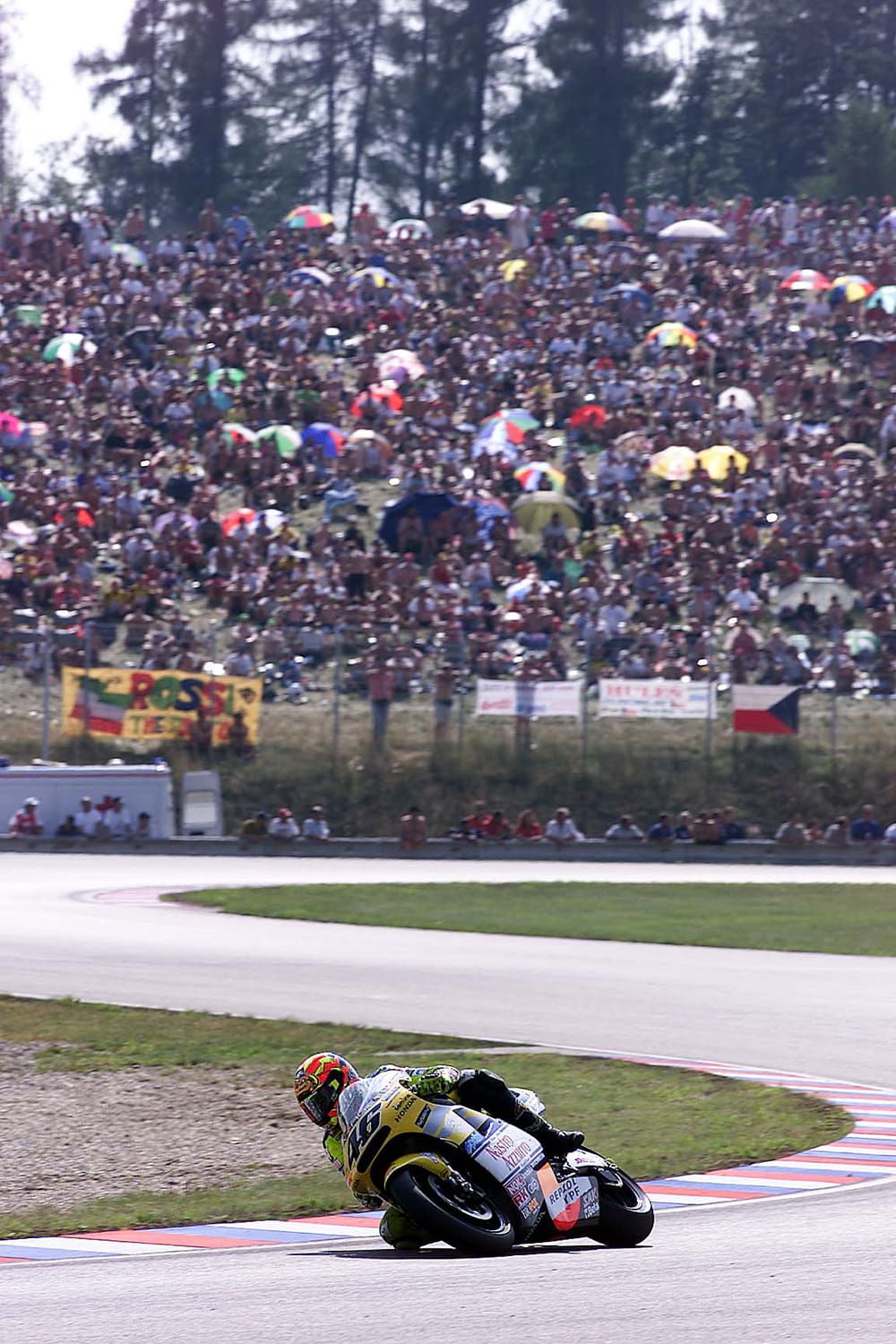
6 Czech Republic Grand Prix, 125cc Brno: 18 August, 1996
An unforgettable career-first grand prix win by Rossi, the flamboyant teenager who beats small bike legend ‘Aspar’ Martinez by 0.245s.
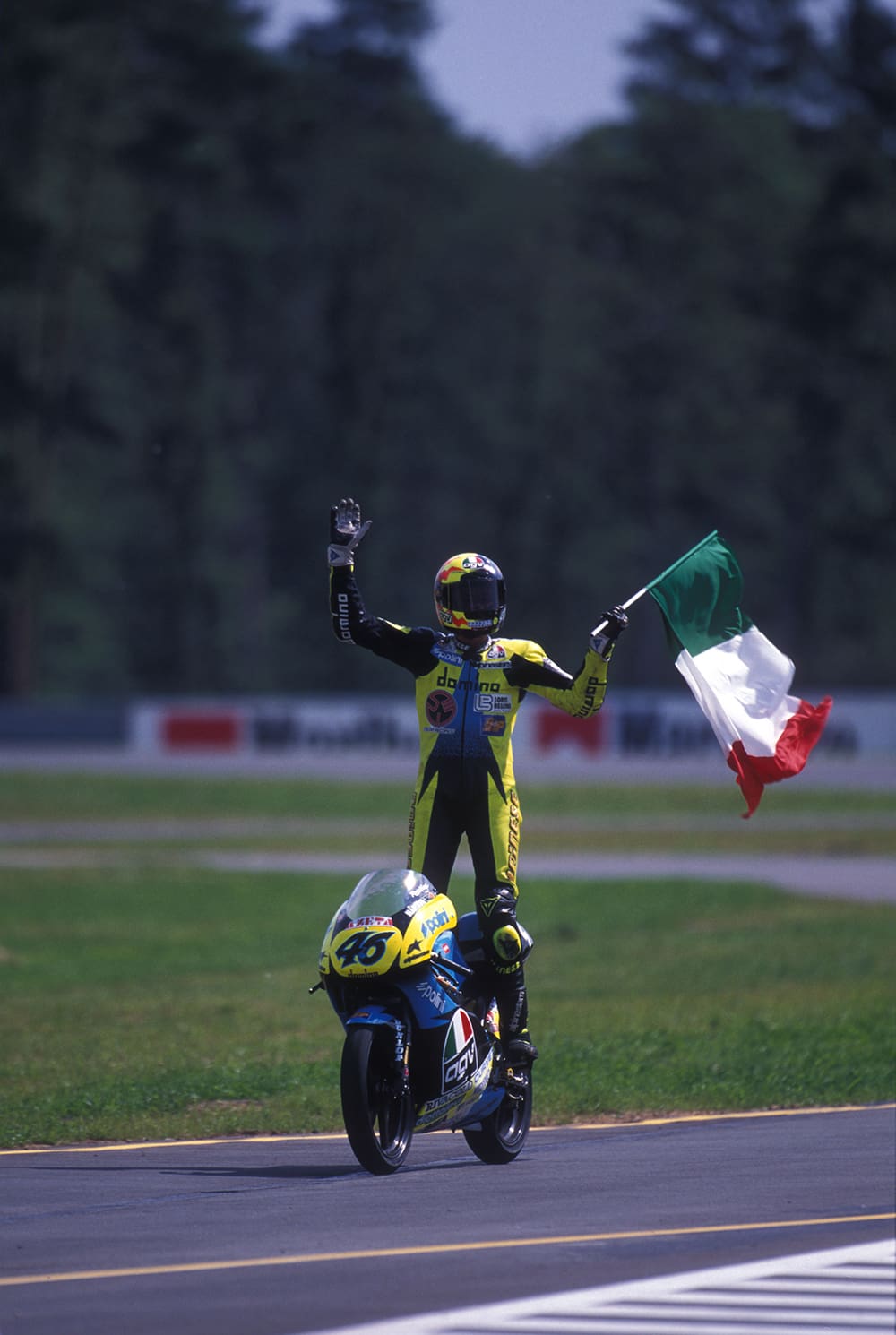
7 China Grand Prix, MotoGP Shanghai: 4 May, 2008
A huge relief for Rossi, his first win after his switch to Bridgestone tyres inspired by Stoner’s success, with his Yamaha teammate Jorge Lorenzo on Michelins.
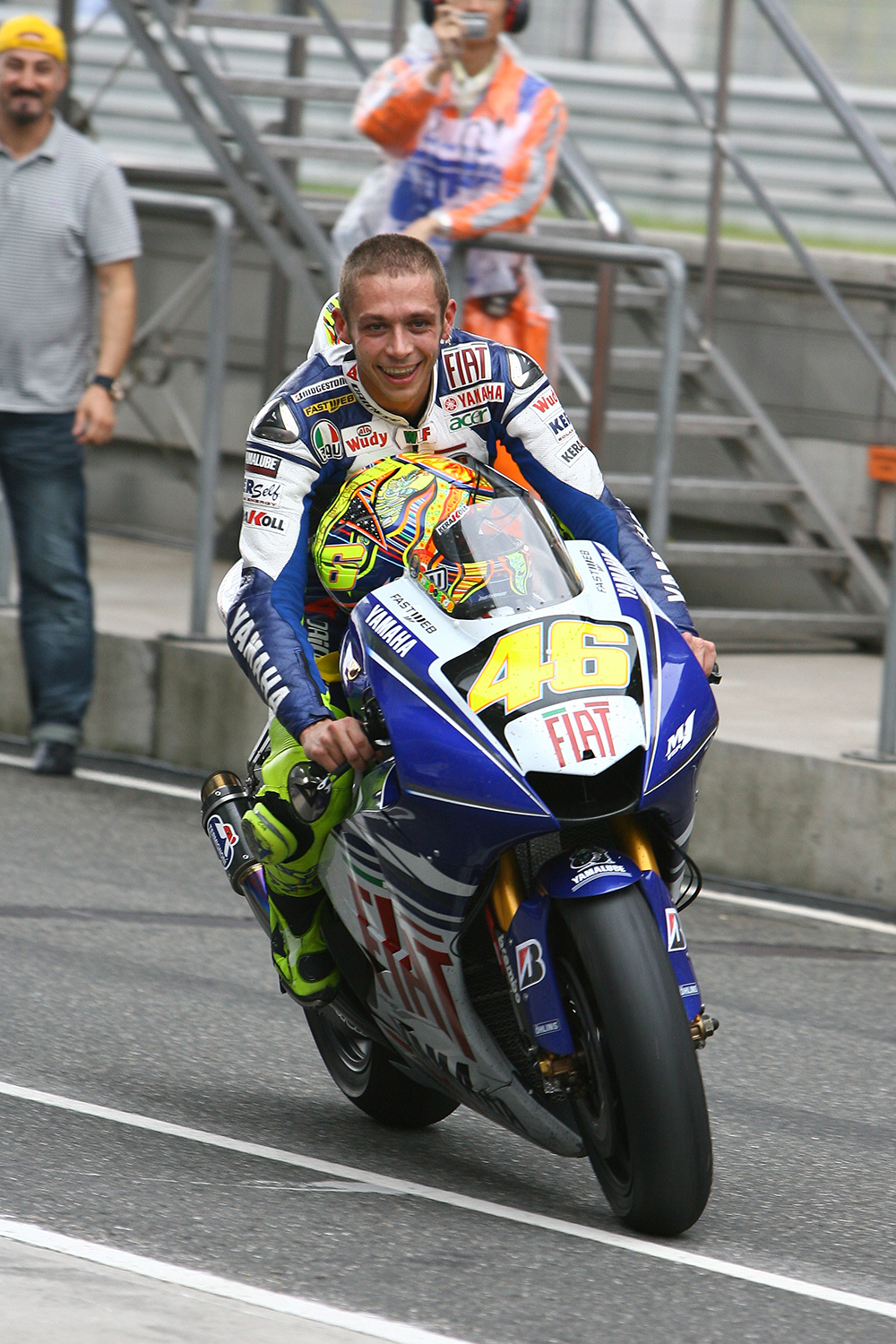
8 Czech Republic Grand Prix, MotoGP Brno: 31 August, 1997
Rossi wraps up the first of nine world championships with third place behind Nobby Ueda and Tomomi Manako, the trio separated by 0.3s.
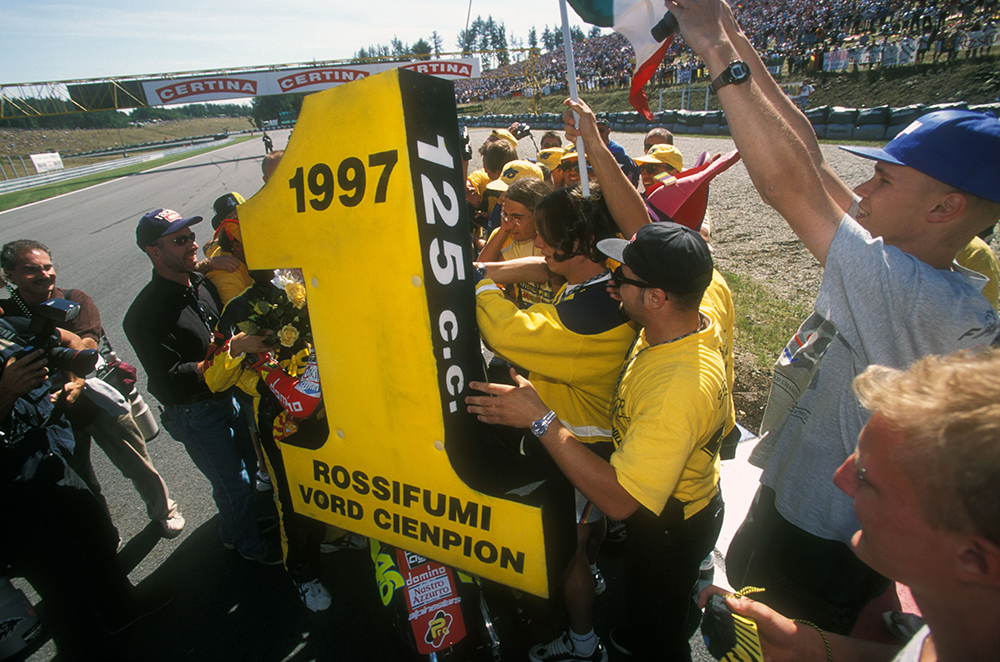
9 Australian Grand Prix, 500cc Phillip Island: 14 October, 2001
A classic Island battle against Max Biaggi (Yamaha) ends with Rossi claiming a 0.013s victory on the final lap to clinch the 500cc championship.
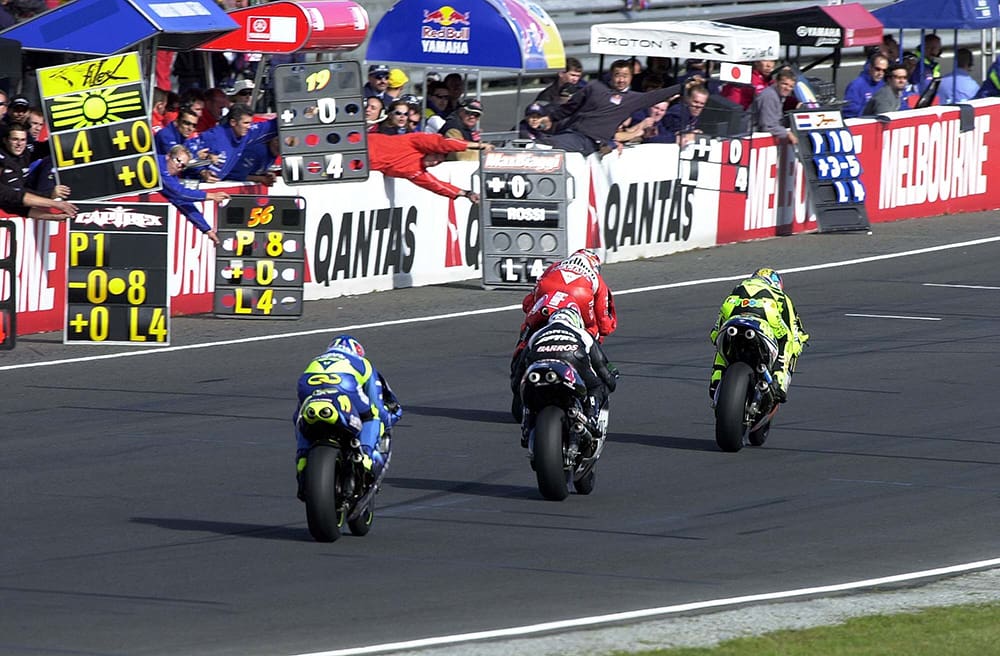
10 Dutch TT, MotoGP Assen: 29 June, 2013
After a winless two years at Ducati, this victory is Rossi’s first upon his return to the safe haven of Yamaha. He beats Marc Marquez (Honda) by 2.1s.
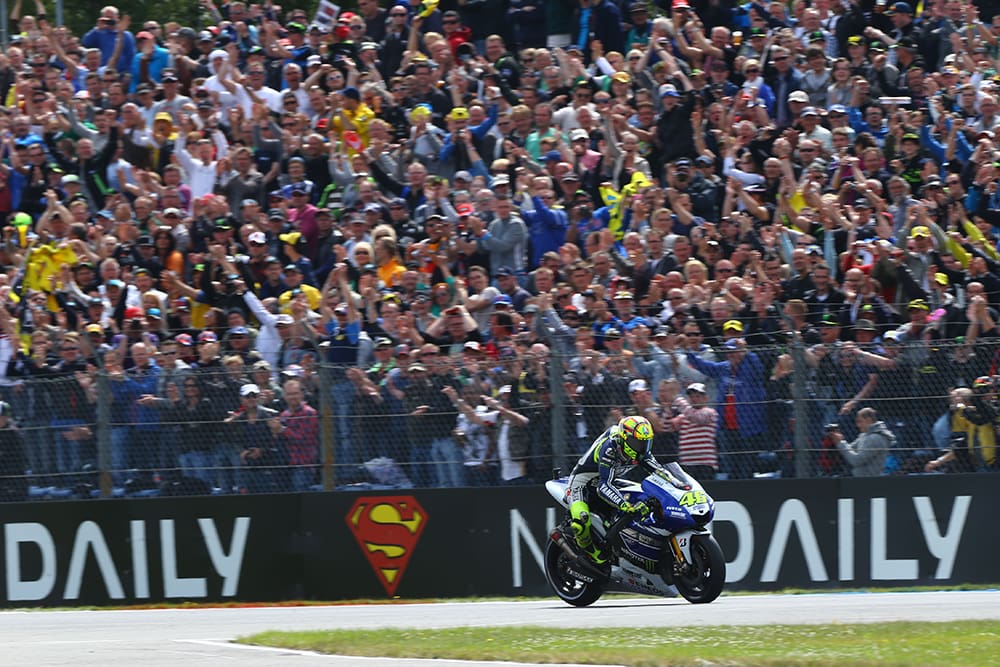
Lin Jarvis
The guy that let him keep racing
“It is truly amazing that after more than 400 races Valentino maintains so much commitment and motivation for every aspect of racing,” said Jarvis, Managing Director for Yamaha Motor Racing. “It is extraordinary in such a very tough sport as MotoGP and it is something for which I have huge respect.
“And then there is what Valentino has given back to the sport on all levels, with his success and global profile and the contribution to young riders through his riding academy, which Yamaha supports.
“And then there’s his endless enthusiasm for his devoted fans.
“For me, personally, Valentino’s race win at Phillip Island in 2004, which clinched his first championship with Yamaha, was an awesome moment. It was mission accomplished for the project in Valentino’s first year with Yamaha and my first year as team principal.
“Valentino’s mother Stefania was there with his brother Luca, who was just seven years old. It was an amazing atmosphere with Valentino, Stefania and Luca together after the race.
“Now we see Luca as part of a new generation of riders. And I imagine it is not easy being Valentino’s brother in grand prix racing.”
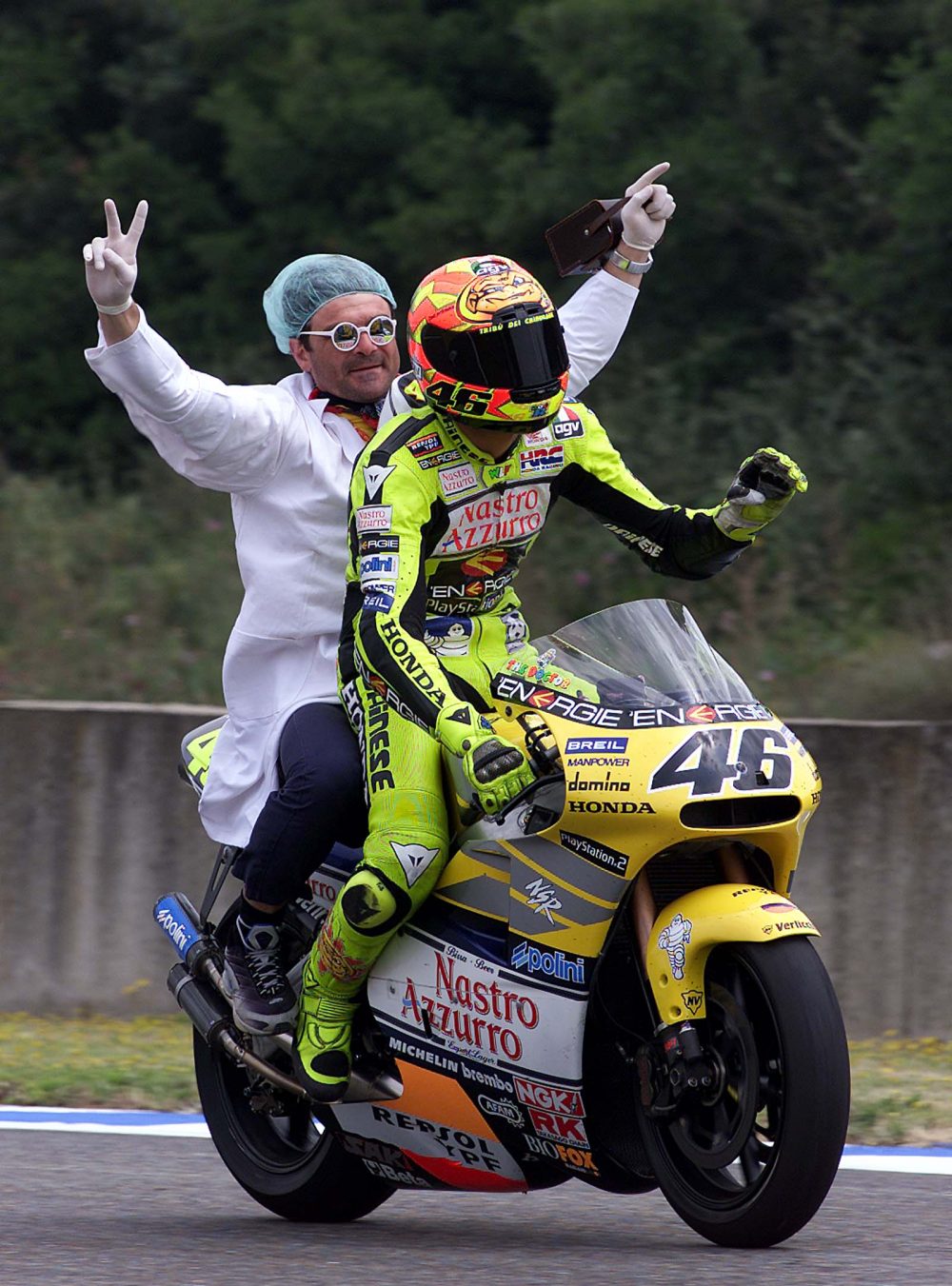
Words Paolo Ianieri & Colin Young Photography Gold&Goose
